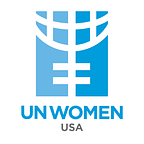The Importance of Creating Inclusion for the LGBTQIA Community in Your Workplace
Many companies have already made great progress in fostering inclusivity. There is significant progress to be made, especially in working on the well-being of LGBTQIA employees and protecting their rights.
Did you know that a recent study shows that close to 40% of LGBTQIA employees[1] who have to hide their identities in the workplace are more likely to suffer from depression and stress? Moreover, the LGBTQIA community represents a global household wealth of $23 trillion. This lesson should not be ignored by small businesses; although according to the US Chamber of Commerce, 91% of Fortune 500 companies include sexual orientation in their discrimination policies, this is not a “big business” thing. It’s a competitive advantage.
So how can we create a better workplace for the LGBTQIA community?
Promote acceptance. — Promoting respect, acceptance, and diversity could lead to better decisions, improved creativity and innovation, and higher productivity. In fact, companies that embrace diversity are 120% more likely to meet their annual financial targets. Other ways to promote acceptance include organizing DEI workshops as well as creating employee resources groups (ERGs).
“Zero-tolerance policies. A significant number of Fortune 500 companies has been adding policies to protect against LGBTI discrimination.” Just in the past decade, it rose from 3% to 83%[2]. Creating a safe and respectful environment at your workplace and retaining valuable talent could increase the performance of your company exponentially.
The LGBTQIA community has been facing many socioeconomic challenges, many of them had admitted to being a victim of harassment, domestic violence, hostility, bullying, and discrimination. In order to maintain the well-being of the employees, the companies should include sexual orientation, gender identity, and gender expression in their anti-harassment policies.
Pay attention to the Corporate Equality Index (CEI). — CEI could be a great tool to incorporate new policies and provide a deep insight into how corporations are implementing new norms, based on their community’s needs and how to extend these new policies to their suppliers, contractors, and customers.
94% of CEI-rated employers (1,081 of 1,142 respondents) have an employee resource group or diversity council that includes LGBTQIA and allied employees and programming.
85% of CEI-rated businesses (971 of 1,142 respondents) have written giving guidelines that prohibit philanthropic support of non-religious organizations with an explicit policy of discrimination towards LGBTQIA people.
624 major businesses have adopted gender transition guidelines to establish best practices in transgender inclusion for managers and teams.
233 Fortune 500 companies participated in the 2021 CEI.
99.7% of CEI employers included gender identity and non-discriminatory policies.
How are the UN and UN WOMEN supporting the LGBTQIA Community?
In 2016, the United Nations Human Rights Council recognized the urgent need for improved measures to protect the LGBTQIA community against violence and discrimination, and adopted resolution 32/2. This resolution mandated the appointment of an independent expert on protection against violence and discrimination based on sexual orientation and gender identity (SOGI).
Conclusion
This defining vote is a victory for LGBTQIA people and human rights everywhere. It will ensure the continued dismantling of structures and institutions that perpetuate violence and discrimination toward the LGBTQIA community and ensure efforts to achieve universal protection of the rights of LGBTQIA people continue.
We still have a long way to go and a lot of work must be done. By supporting the LGBTQIA community through policies, workshops, and a safe and inclusive environment, we are being part of the change by promoting social inclusion and protecting the rights of our fellow LGBTQIA team members.
Written by Carla Van Der Hoeven, Communications Coordinator, UN Women USA LA
